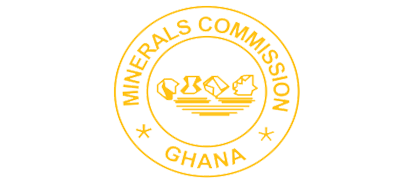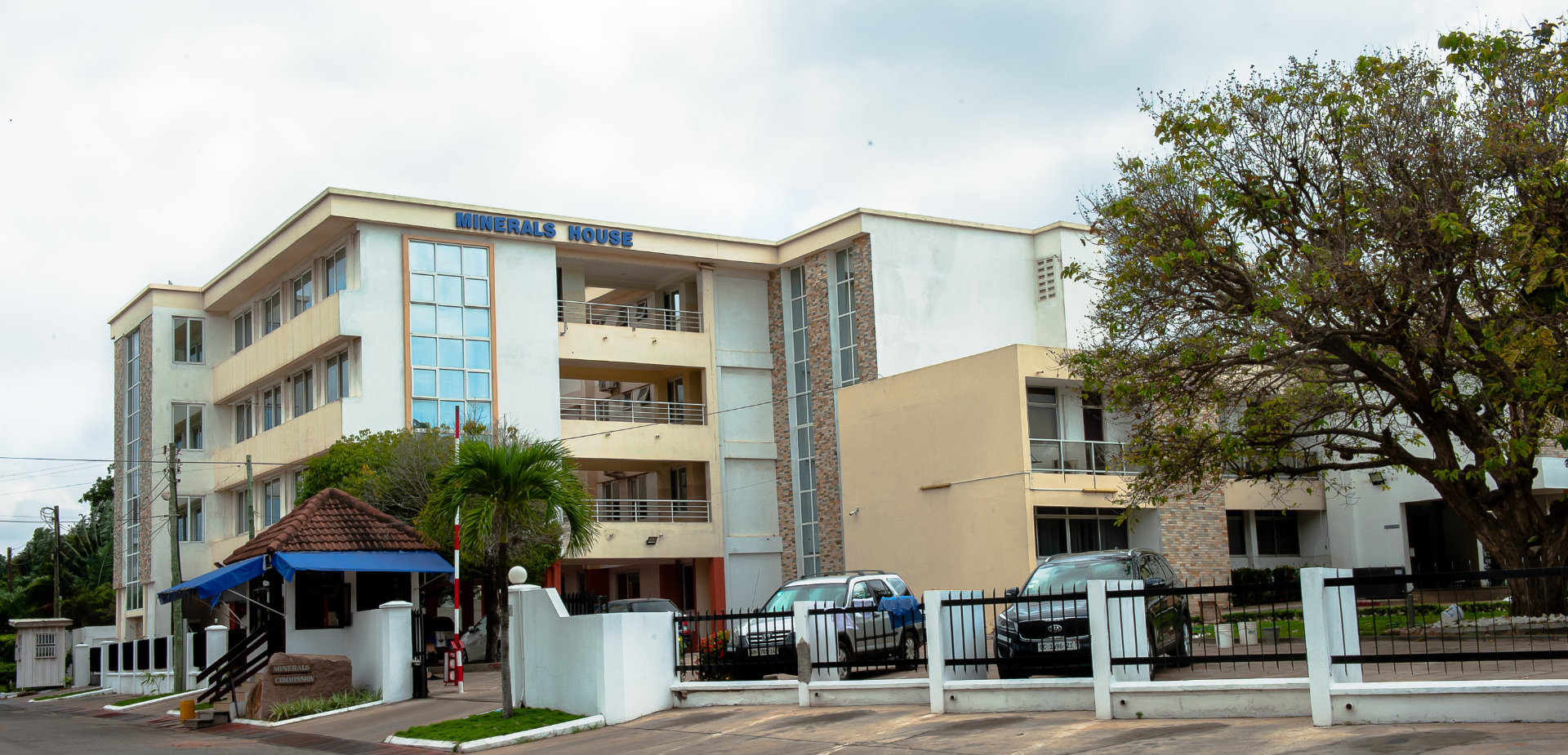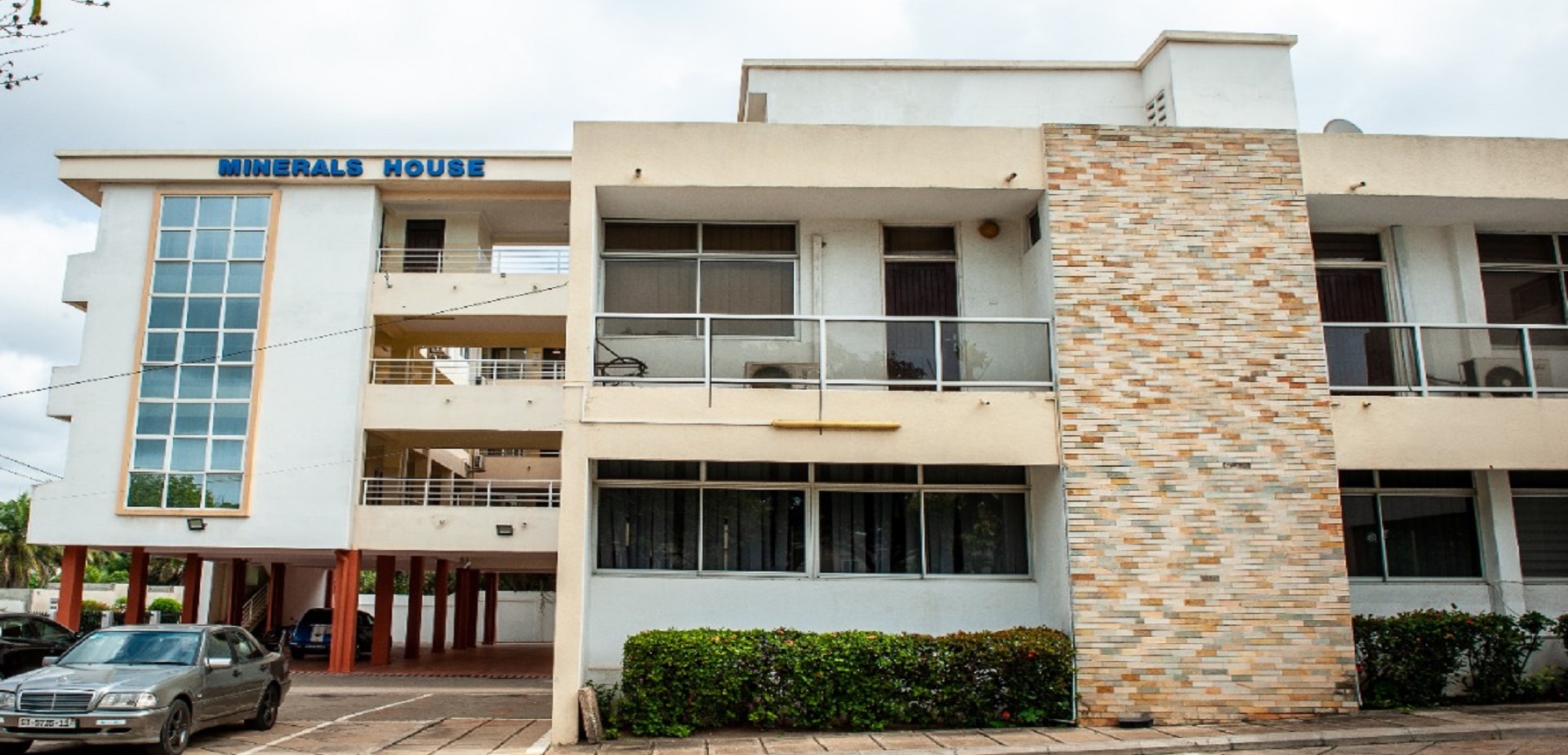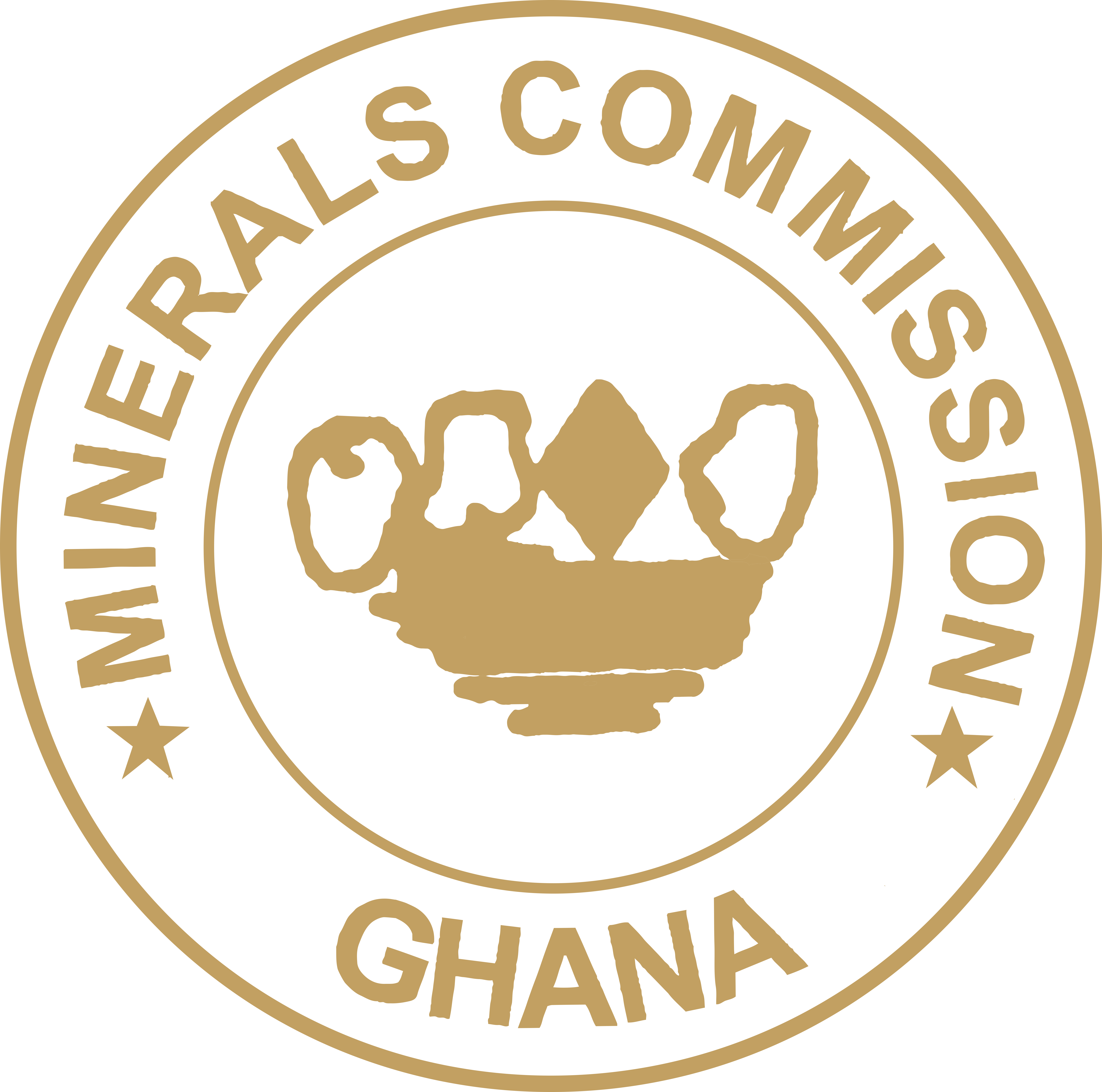About Us
The Minerals Commission of Ghana is the Government agency with the primary responsibility of developing and coordinating mineral sector policies and monitoring their implementation. The Commission was established under the Minerals Commission Law (PNDCL.154). With the promulgation of the 1992 Constitution, the Parliament of Ghana enacted the Minerals Commission Act, 1993 (Act 450) to give continued legal backing to the existence of the Commission, as required by Article 269(1) of the Constitution.
Our Mandate
The Commission is responsible for the regulation and management of the utilization of the mineral resources of Ghana and the co-ordination of the policies in relation to them.
Mission
To foster efficient and effective regulation and management of the utilization of Ghana’s mineral resources through the development of solid knowledge-based, self-led organization, which recognizes that mining investment will take place and be sustained only if it is under Win-Win circumstances.
Vision
The Minerals Commission will strive to make Ghana the leading destination of mining sector investment in Africa through creating a congenial atmosphere in which all stakeholders work as partners in a safe environment to achieve one common goal: sustainable development through mining.
Core Values
The Commission is committed to it’s core values that includes:
1. Professionalism
2. Integrity
3. Team Work
4. Service Excellence
WHY MINERALS COMMISSION?
Prior to the establishment and inauguration of the Minerals Commission on 13th September 1984, there were two governmental agencies for the promotion of the development of industries around specific minerals in Ghana. These were the Aluminum Industries Commission (AIC) for Bauxite and the Integrated Iron and Steel Commission (IISC) for iron ore.
The maintenance of these two separate agencies with similar mandates for the same sector posed a number of challenges which included budgetary constraints and scarce human resources. An option was to set up a single body with a focused function of developing and coordinating mineral sector policy and monitoring its implementation, excluding hydrocarbons, in Ghana.
Governing Structure
The Commission has nine (9) members on its Board.
The Secretariat is headed by the Chief Executive Officer (CEO) who is also an ex-officio member of the Board
The Secretariat is made up of three (3) main Divisions namely:
Support Services Division
Promotion & Development Division
Inspection & Compliance Division
Official External Partners
















